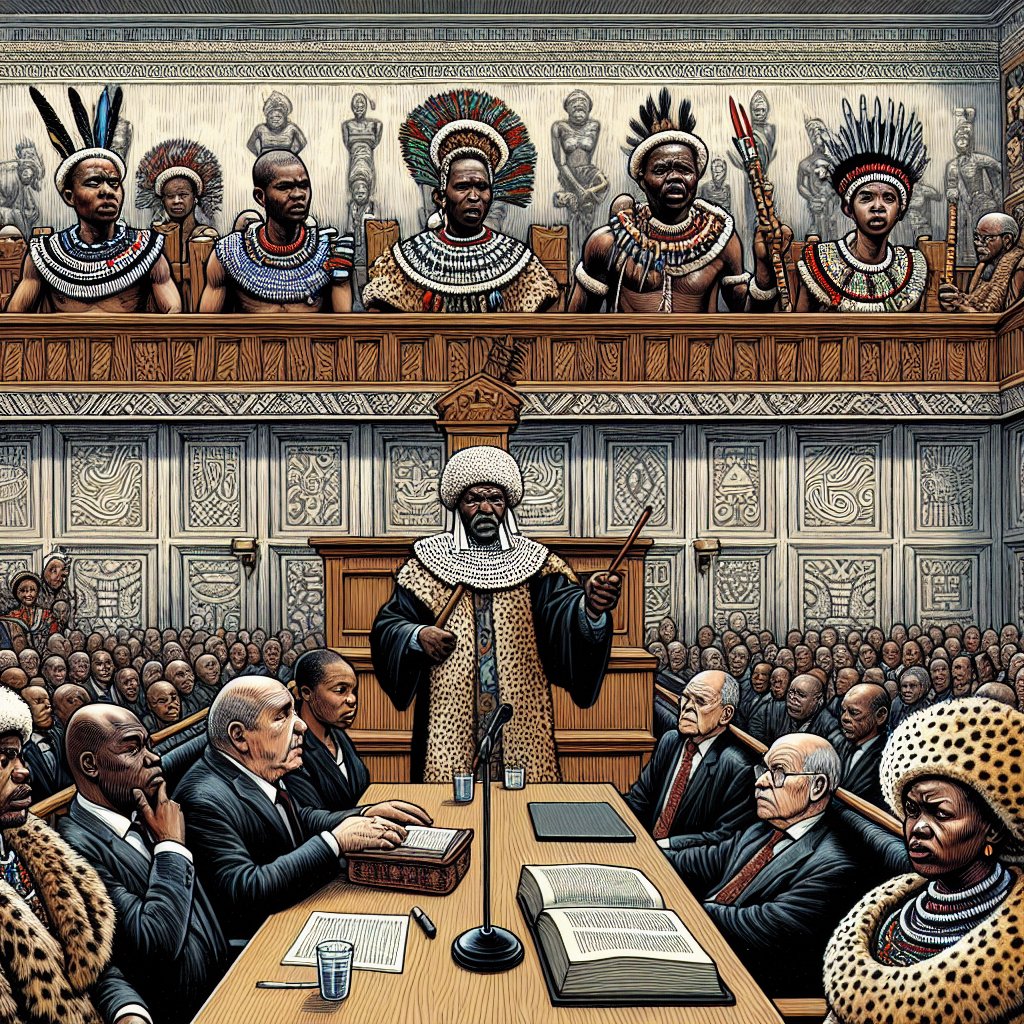Content created by AI
Turbulence in the Zulu Monarchy: Ramaphosa's Recognition of King Misuzulu KaZwelithini Questioned
The North Gauteng High Court in Pretoria has stirred a storm within the Zulu royal family and South Africa’s broader sociopolitical landscape. This tumult was instigated by the court's ruling on the disputed succession of the Zulu throne, questioning President Cyril Ramaphosa’s procedural execution in recognizing Misuzulu KaZwelithini as the Zulu King. In delivering his judgment, Judge Norman Davis has put the spotlight on a matter that reverberates with cultural significance and constitutional implications.
This legal impasse emerged after Prince Simakade Jackson Zulu, brother to Misuzulu, and Mbonisi Zulu, a half-brother of the late King Goodwill Zwelithini, took legal action, challenging the procedures followed in Misuzulu KaZwelithini’s ascension. The case revolved around the President's constitutionally mandated role in formally acknowledging the chosen successor, a gesture signifying the government's recognition but is now embroiled in legal and familial complexities.
Acknowledging the sensitivities and historical gravity, Judge Davis underscored that his judgment was not to dictate the rightful heir but rather to scrutinize the presidential acknowledgement process. Nonetheless, the decision has taken the royal dispute to newer heights, exposing rifts within the Zulu dynasty and presenting a constitutional quandary over traditional leadership recognitions in South Africa.
The crux of the controversy centers around Misuzulu KaZwelithini, who followed in the wake of his father's demise after Queen Mantfombi Dlamini Zulu, named regent and King Zwelithini's third wife, had shortly passed away. Her will endorsed Misuzulu's claim, but this bequeathment has since been mired in litigation and discord among the royal family members who have rival claims or contest the process followed.
The calls to resolve the succession imbroglio have not only engaged the judiciary but also garnered public interest, triggering an introspection into the relevance and administration of traditional authority in modern South Africa. The court ruling has inadvertently propelled an exploratory conversation about the intersection of customary law, democratic principles, and the rituals that have thus far defined Zulu royal transitions.
This predicament holds profound cultural ramifications for the Zulu nation, South Africa's largest ethnic group, as the throne embodies historical legacy and continuity of customary governance. The political underpinnings are equally profound, given the Zulu monarchy's influential role in regional and national sociopolitical dynamics.
While the discussion ensues, President Ramaphosa’s next steps could be determinative. The legal establishment has called upon careful considerations, not least due to the emblematic significance of the royal leadership for the Zulu people but also because this could set precedents for other traditional royalties in South Africa.
As the saga unfolds, Satori News Agency will continue to monitor the events closely and report on developments with the utmost dedication to accuracy and context. The history and cultural heritage of the amaZulu, alongside the constitutional prisms through which such matters are viewed, make for compelling narratives that we are committed to elucidating.










